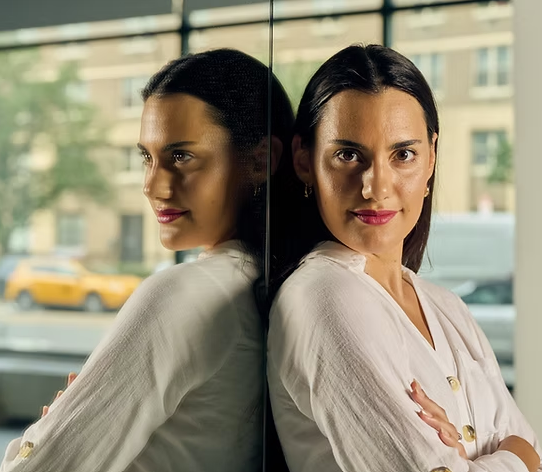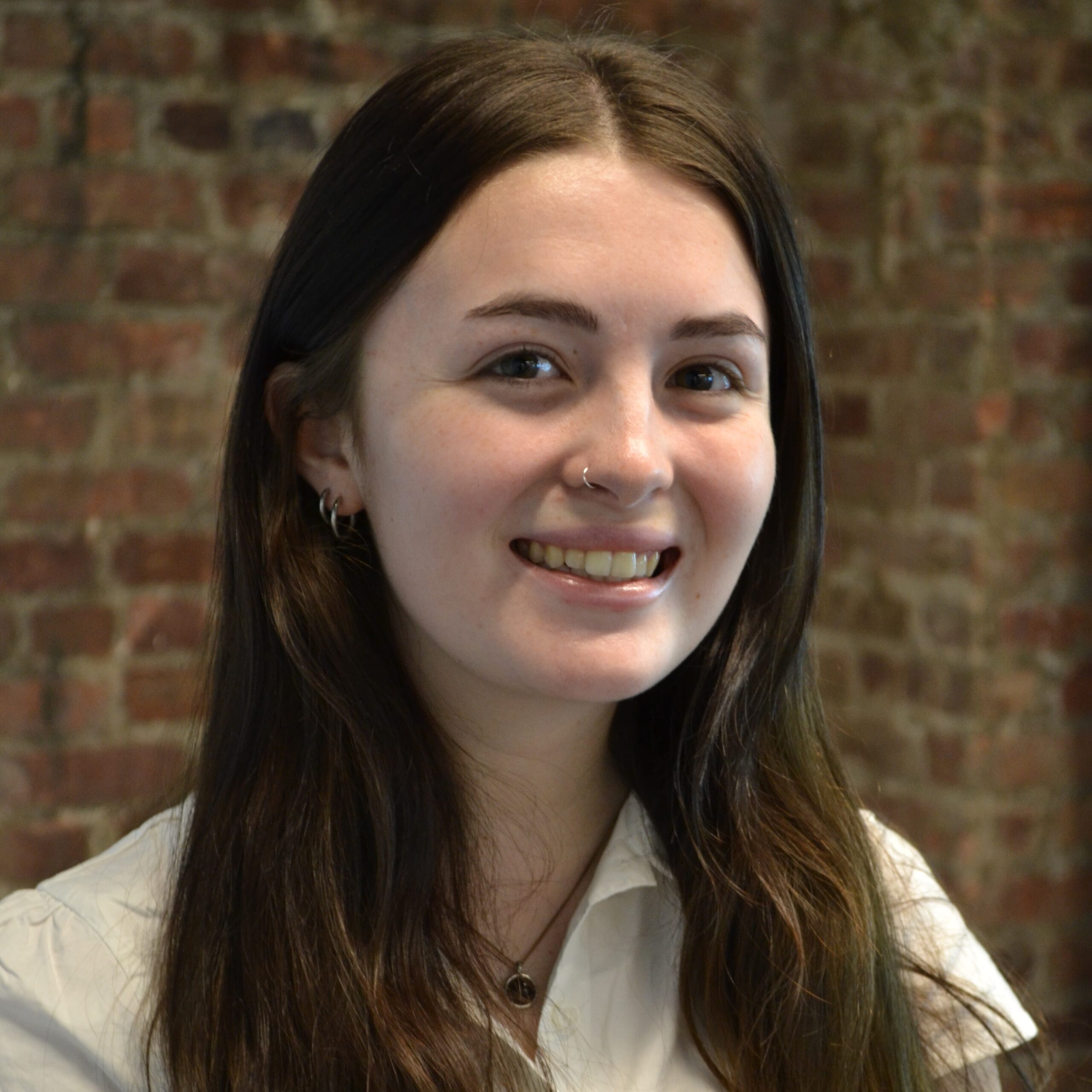From the Dance Floor to the Neurobiology Lab
Constantina Theofanopoulou, PhD, a leading researcher in neurobiology is an accomplished flamenco dancer. She’s also a mentor for The New York Academy of Sciences.
Published April 2, 2025
By Brooke Elliott
Education Communication Intern

Constantina Theofanopoulou, PhD, is an accomplished neurobiologist who served as a mentor for The New York Academy of Sciences Afterschool STEM Program from 2019 to 2022. She taught biological concepts to elementary and middle school students in underserved communities across New York City, serving as a role model to young people interested in the sciences.
“The skills I gained–communication, adaptability, and inspiring curiosity–continue to shape my approach to mentoring and leading research teams today,” she said.
Her favorite part of working with young students? Their unfiltered curiosity. As they grow older, Prof. Theofanopoulou finds that adults often hesitate to ask questions out of fear of seeming naive. Children don’t have these reservations, and their relentless curiosity is both uplifting and a reminder of how essential it is to maintain an inquisitive spirit in science.
Witnessing “eureka” moments, whether it was understanding a challenging concept or successfully completing an experiment, is what made the Academy program so rewarding.
Greece, Genomics, and Greatness
Prof. Theofanopoulou grew up in Greece, and her early educational life was marked by incredible teachers across all disciplines. “I was equally thrilled to win the Kid Fairytale Prize at age seven and to represent my school in highly competitive national mathematics contests like the ‘Thales’ competition,” she said, adding that the prize was awarded by the major Greek publisher Minoas.
Captivated by the ‘mystery’ of language, she pursued linguistics for her undergraduate studies, feeling that this field stood somewhere in between the sciences and humanities. “I do believe that scientists clearly benefit from skills traditionally associated with the ‘humanities’, such as crafting clear scientific writing or developing persuasive grant proposals. Interdisciplinary abilities are essential in science and scientific leadership,” said Prof. Theofanopoulou.
After earning her PhD in Neuroscience of Langue from the University of Barcelona, she completed research stays at Duke University and Rockefeller University which earned her a “Universal PhD” title. She then pursued postdoctoral research at The Rockefeller University, with a focus on the neurobiology of speech and the genomics of social communication. She joined the faculty of CUNY Hunter College from 2022 to 2023 and now holds a position as a research assistant professor at The Rockefeller University.
Connecting Neurobiology and Dance
In addition to being an influential scientist, Prof. Theofanopoulou is also an accomplished flamenco dancer. In 2012, she was awarded first prize by the Spanish Dance Society and has been dancing since she was five years old.
It wasn’t until recently that Prof. Theofanopoulou realized she could combine her love of dance with her passion for science, using her insights into the neurobiology of dance to benefit her research in the neurobiology of speech. Because humans and select bird species (including parrots) are the only beings with advanced vocal learning abilities and clear rhythmic entrainment (dance), she hypothesized that there might be a shared neural pathway and evolutionary mechanisms underlying these two behaviors. She began exploring the two fields in tandem, integrating her choreography skills into experimental designs.
“My goal is not to inspire others to follow my exact path but rather to encourage them to identify what truly excites them and pursue it with passion and dedication,” she said.
Commitment to Diversity in Science
For Prof. Theofanopoulou, supporting underrepresented communities in science is an obvious and necessary cause. “It is profoundly unjust to exclude individuals from pursuing their passions based on identity. Scientifically, a narrow pipeline of voices can never produce the best ideas,” she said. As a woman in a male-dominated scientific field and an international scholar navigating multiple cultural and linguistic contexts, she has experienced many of the challenges that underrepresented groups face.
It’s clear that improving representation requires both a top-down and bottom-up approach, according to Prof. Theofanopoulou. Systemic support structures, such as targeted initiatives and mentorship programs like the Academy’s Afterschool STEM Program, foster inclusive lab cultures through everyday actions. It’s through this mentorship that Prof. Theofanopoulou works to improve the community for the generations of young scientists she inspires.
Learn more about the Academy’s educational initiatives and how you can become an impactful mentor just like Prof. Theofanopoulou.
Prof. Theofanopoulou will give a short lecture and showcase her flamenco dance skills during the “Rhythms of Exchange: the Latin American Influences on Flamenco Arts” event on April 15 at The Rockefeller University, 1230 York Ave, 10065, New York, NY. This free event begins at 5 p.m. and is open to the public. RSVP today if you want to attend!
